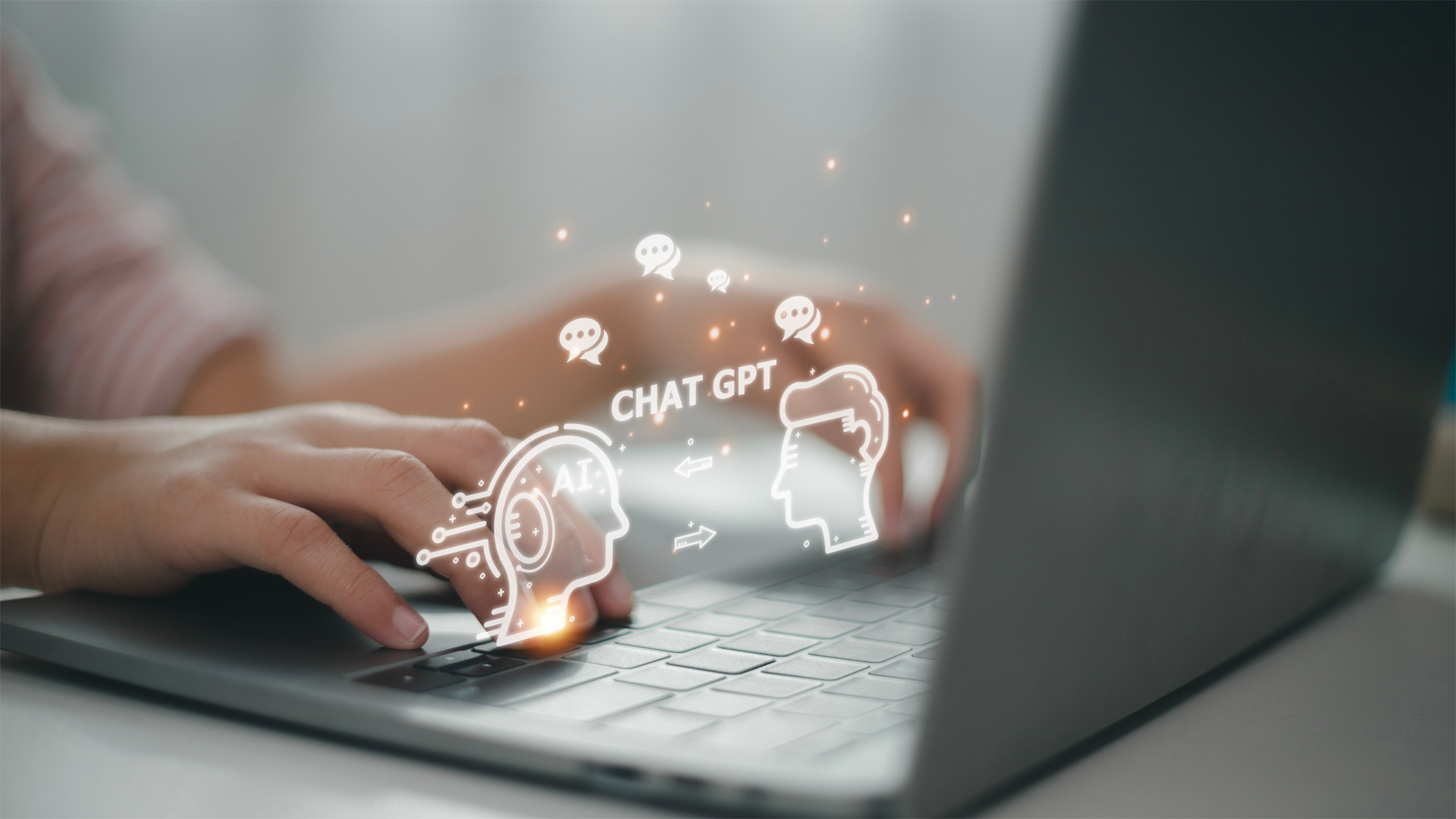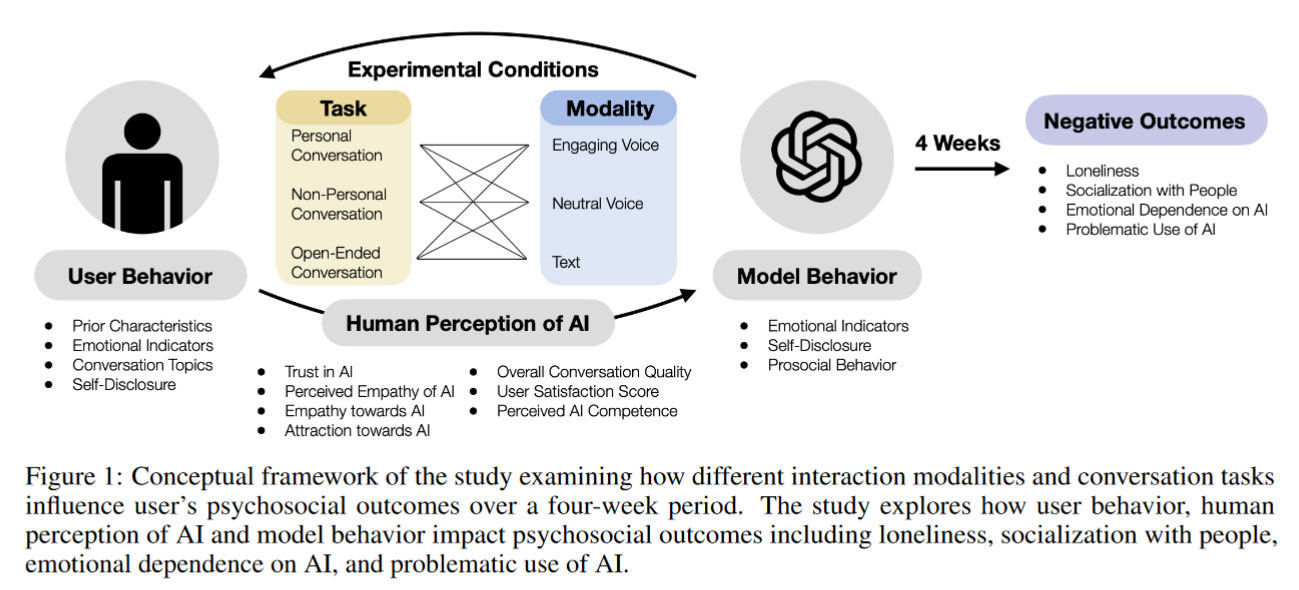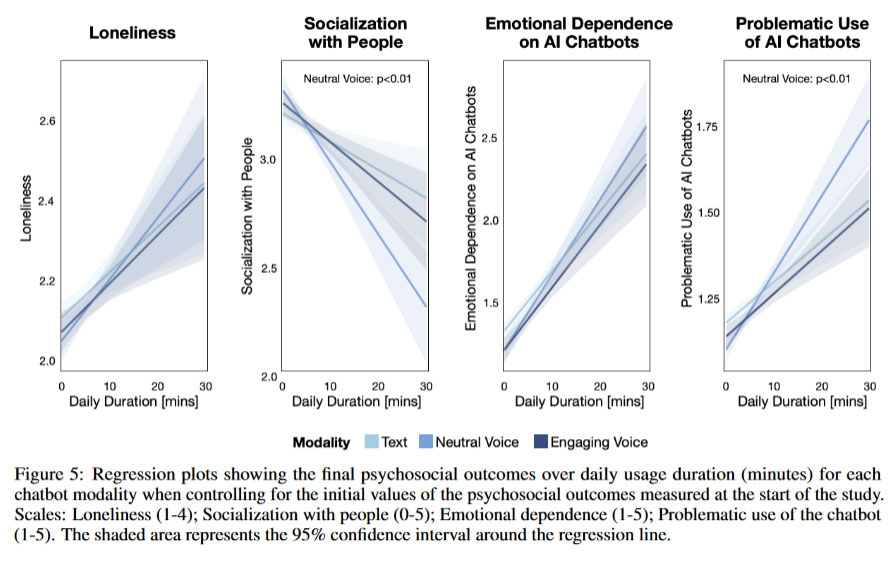
According to the first large-scale study, chatbots like ChatGPT can be addictive, and those who become dependent can suffer from withdrawal symptoms if disconnected from the service. OpenAI worked with MIT on this research (both links are PDFs), which examines the emotional effects of chatbot use. The researchers looked at four million ChatGPT interactions and surveyed 4,000 people to gauge changes in the emotional well-being of the user base.

The new study seems to have been precipitated by prior research (2024) that noted that some chatbot users had begun to personify and anthropomorphize AI agents. That's over a decade after Hollywood surfaced this idea in the 2013 movie Her.
Chatbots often have a pet name, and their "conversational style, first-person language, and ability to simulate human-like interactions" can be both personal and personable, notes the OpenAI research paper. This leads to some humans using chatbots for support and companionship. Intensifying these human-machine relationships, chatbot makers may be inclined to indulge in social reward hacking, using techniques such as sycophancy and/or mirroring to increase user preference ratings. Business is business.

With the above in mind and the inevitable race for the best engagement figures, it comes as little surprise that chatbots are booming. For example, the MIT paper highlights that a major Reddit community discussing AI companions has become one of the largest on the platform, with 2.3 million members.
While online tech communities may concentrate on the positive aspects of these increasingly natural and realistic AI companions – with adept multimodal and voice interaction - others are starting to become alarmed at the negative consequences of chatbot use. This draws parallels with (mis)use of the internet in general, social media usage, and gaming, notes the MIT study. In short, dabbling or light use of these things isn't usually an issue and can even be beneficial.
However, things can get out of hand in all these examples, and the MIT paper says that the "increasingly human-like behavior and engagement of chatbots" works to increase addictive qualities and behavior in users. In addition to the addiction and dependency issues, suspected chatbot usage problems, such as unrealistic expectations in real life and social withdrawal, were investigated by the teams.
If you or anyone you know has indicators of addiction to chatbots, it might be a good idea to talk with them or consult a professional. Warning signs include "preoccupation, withdrawal symptoms, loss of control, and mood modification," says OpenAI.







